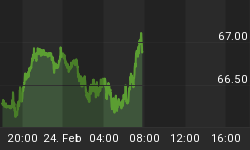Most Americans who are unschooled in political and economic thought should have no trouble in the coming election. They may vote for candidates who, in their judgment, not only are likely to be honest and trustworthy but also promise great economic improvements and personal benefits. But some Americans who make an effort to reflect on the records and promises made by the candidates may face difficult questions of conscience. As voters they may be forced to choose among several candidates for high political office all of whom are likely to make matters worse. Does their conscience force them to search for and choose the lesser evil or even abstain from participating in the contest?
Guided by old notions of labor disadvantage and exploitation, the political candidates may favor popular labor legislation and regulation that are designed to benefit some workers but inflict great harm on others. They may advocate prompt government intervention in matters of lay-offs and health-care benefits, affirmative action and NAFTA, which actually may disrupt and depress economic activity. Guided by some concern for old voters, they may promise more Medicare - drug benefits at reduced prices or even complete coverage of total health expenses - at the expense of the well-to-do, old and young alike. All such promises not only tend to aggravate social conflict but also threaten to impede economic activity. Does the conscience of knowledgeable voters who pay heed to such political promises force them to choose the lesser evil or even withdraw from the political fray?
Surely, they will not vote for candidates walking in the footsteps of Presidents Hoover and Roosevelt who severed many trade relations with old trade partners and doubled and even trebled income and business taxes thereby molding the Great Depression. But will they consent to cast their votes for candidates who are treading on the heels of Presidents Kennedy, Johnson, Nixon, Ford, and Carter? They conducted popular policies that led to chronic "stagflation," that is, a medley of rampant inflation and painful stagnation. By 1980, double-digit inflation was reducing the economic substance of most Americans and economic stagnation was depressing their levels of living. Surely, knowledgeable voters would not choose such candidates - unless they feel compelled to opt for the lesser evil and thus prevent the greater evil. But is it ethical in accordance with the principles of right and good conduct to cast a vote for any evil?
Most moral philosophers would answer this question in the affirmative - as long as the lesser evil serves to prevent the greater evil. To save a life, I may lie and deceive a raving assassin who is searching for his victim. But does this moral principle apply to the world of politics? This writer is inclined to deny its applicability because a vote for one evil does not lead to inactivity but rather to ever more evil; social and economic policies spring from social and economic thought that may give rise to many levels of evil.
If I approve of any labor legislation that interferes with actual market conditions, I may invite ever more regulation. If I favor some health-care benefits for some people at the expense of other people, I may not be able to object to "further improvements." If I approve of any "affirmative action," that is, government programs to overcome the effects of past societal discrimination by allocating jobs and resources to members of special groups, such as minorities and women, I may, in the end, clear the way for the substitution of the political command order for the market order in all relations with minorities and women. If I approve of some government protection of American labor from the competition of foreign labor in NAFTA countries, I may not be able to object to ever "better protection." If I look with favor upon some free medical services to the elderly, I may not be able to deny them ever more benefits. After I say "yes" to benefits and entitlements, how can I later say "no"?
In politics, any vote for lesser evil may pave the way for greater evil. Awareness of this tendency may cause many Americans not to participate in the election process; they do not want to feel responsible for the manifestation of much evil in politics. Other Americans may cast their votes for a minority party that is not expected to participate in any policy-making. Briefly sharing the political platform with the major parties during election time, minority parties may be able to raise objections to the aspirations of the policy-shaping parties. But political objections rarely lead us in new directions. They cannot take the place of truthful information and earnest education of the inexorable principles that affect our lives.
The lesser-evil road leads straight to the command system. It has many stops at which the drivers take a breather and refuel for the next lap. At times, some may wonder and argue about the costs and affordability of the trip. But as long as there are some affluent drivers left, the passengers are likely to push ahead. They may press on although the road is hard and difficult and every mile is paid for with social conflict and economic decline.
















